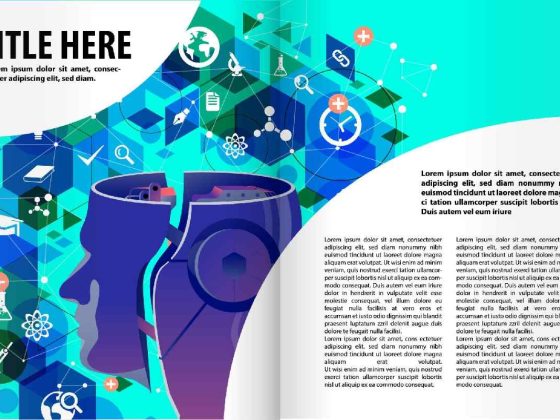Imagine navigating a crowded marketplace filled with countless products, each vying for your attention. Your eyes dart around, searching for something familiar, something you recognize. Suddenly, amidst the sea of unknowns, you spot a product endorsed by your favorite Instagram influencer. A sense of trust washes over you. This is the power of influencer sponsorship, a concept that has dramatically shifted the landscape of marketing.
Influencer sponsorship refers to collaborations between brands and popular social media personalities. These influencers promote the brand’s products or services, often in exchange for compensation or free products. The goal? Enhance brand awareness – the extent to which consumers recognize and associate a brand with specific products or services.
Sales, on the other hand, are the tangible transactions that directly result in revenue generation for a brand. In the digital era, where the average person spends hours each day on social media, influencers are playing a pivotal role in shaping consumer behavior and driving sales.
Table of Contents
The Evolving Landscape of Influencer Marketing
Influencers hold significant sway over their followers, helping brands extend their reach far beyond traditional marketing channels. Imagine an influencer with a million followers promoting a brand on their platform; this exposes the brand to a potentially larger audience, amplifying its message in a way that feels authentic and personal.
The benefits don’t stop at reach and exposure. Influencer partnerships also hold the potential for higher engagement rates. Why? Because influencers have cultivated a bond of trust with their audience. Their followers are more likely to engage with a sponsored post than a conventional advertisement, turning potential consumers into active participants.
The Impact of Influencer Sponsorship on Sales
Influencers, with their cultivated expertise and credibility, have a distinct persuasive power over their audience’s purchasing decisions. This phenomenon, known as influencer advocacy, is a powerful sales driver. When influencers recommend a product or service, their followers are more inclined to buy it.
However, it’s not enough to just partner with influencers and hope for the best. Brands need to measure and track the impact of these partnerships on sales. Tools like Google Analytics, UTM parameters, and influencer marketing platforms can help track referral traffic, conversions, and direct sales attributed to influencer partnerships. These metrics offer insights into the effectiveness of influencer campaigns and guide future marketing decisions.
Factors Influencing the Success of Influencer Sponsorship
Several factors can influence the success of influencer sponsorships. Understanding these can help brands maximize the effectiveness of their campaigns:
Influencer-Brand Fit: Not all influencers will be a good fit for a brand. It’s crucial to select influencers whose target audience aligns with the brand’s market. The influencer’s audience, niche, values, and content style should align with the brand’s target market and image. A mismatch can lead to ineffective campaigns and may even damage the brand’s reputation.
Transparency and Authenticity: Influencers must disclose sponsored content. This not only aligns with ethical guidelines but also fosters trust with the audience. Authenticity, in this sense, is crucial for maintaining the credibility of both the influencer and the brand.
Quality of Content: The content produced by the influencer plays a significant role in the success of a campaign. High-quality, engaging content can drive more engagement and conversions.
Long-term Relationship: And speaking of trust, cost-effective marketing is often about creating genuine connections. Developing a long-term relationship with influencers can be more beneficial than one-off engagements. This approach allows for a more cohesive brand message and sustained influence over the audience.
Leveraging Influencer Sponsorship for Long-Term Success
Influencer partnerships should not be viewed as a one-time transaction. Instead, brands should focus on establishing strong, mutually beneficial relationships. Long-term collaborations can lead to a more cohesive brand image and sustained influence over the audience.
Incorporating influencer-generated content into brand marketing strategies can also enhance brand exposure and engagement. This not only takes advantage of the influencer’s creative skills but also fosters a sense of community, further encouraging user-generated content.
Final Thoughts
Influencer sponsorships can significantly enhance brand awareness and drive sales, especially in our increasingly digital world. From expanding brand reach to influencing purchasing decisions, influencers have become indispensable assets in marketing.
As we look towards the future of influencer marketing, trends such as the rise of micro-influencers, the use of AI-powered influencer analytics, and the integration of influencer marketing with emerging platforms like TikTok and Clubhouse signal exciting developments. Brands seeking to flourish in the contemporary digital landscape must recognize the power and potential of influencer sponsorships.
Brands that can effectively leverage these partnerships, while continually adapting to emerging trends and technologies, are poised for long-term success in the dynamic digital marketing landscape.
Influencer sponsorships are more than just a passing fad; they’re an integral part of the future of marketing. Brands that embrace this reality will be better equipped to thrive in the digital age, connecting with consumers in meaningful ways and driving sustained growth.




